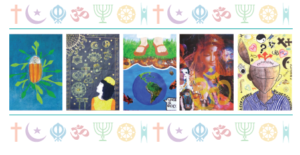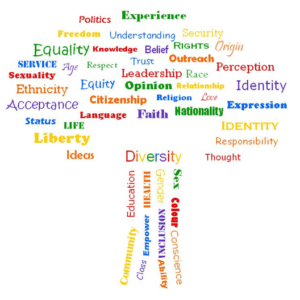
Intent
The intentions of Religious Education at Mercenfeld are as follows:
To equip children with an in-depth and broad knowledge about a range of religions and non-religious world views, including experiences such as visits to places of worship and discussions with people of different faiths and thereby promoting cultural capital.
To teach children the skills of enquiry and debate, considering their own views and those of others. This includes children exploring the big questions about life, reflecting on their own ideas and ways of living.
To enable children to recall facts and build their knowledge and skills as they grow.
To make learning accessible for all children by using a variety of cross-curricular teaching styles including art, drama, discussion, story reading, music, ICT and writing and through differentiation of work.
To promote British Values by providing knowledge and understanding of different beliefs and teaching tolerance and respect of different people.
To enable children to go out into the world with the knowledge and skills to understand the beliefs of others and live peacefully in today’s diverse and ever changing world.
Implementation
RE lessons are taught throughout the academic school year and in some year groups RE is taught within topic based work. The Learning Outcomes for each year group relate to the Key Questions set out in the Twinkl Syllabus. Emphasis is placed on learning about people of different beliefs and how their religious or non-religious views help them in their daily lives. In later years pupils also consider how having a faith may provide challenges.
Children are taught to reflect on their own opinions with the knowledge that everyone is entitled to their own beliefs as long as they are considerate of others. The main religions that are taught are Christianity, Hinduism, Judaism, Sikhism, Islam, Buddhism and Humanism. Every Year a selection of important religious festivals from the six religions are observed, with each year group building on previous learning and understanding.
All lessons involve retrieval of previous learning relating to the current Learning Objective to enable pupils to embed learning into their long-term memory. In some cases this may be learning from a previous term or year.
Pupils are encouraged to read different genres, independently or as a group. There are many facts to learn about within the different faiths and many stories, prayers and hymn lyrics to read as well. Children experience first-hand learning as far as possible and will include: by visiting places of worship and meeting visitors from different faiths. Handling religious artefacts such as holy books, visual aids, photos, stories from religious and secular traditions. All children are suitably challenged to deepen learning for all. They are all given equal access to the curriculum and a variety of sources are used in order to allow this to happen. Differentiation is by outcome, support and activity. Teacher assessment informs future teaching and lessons are adapted if needed. Trigger and end of topic assessment highlight knowledge to children and teachers.
Impact
We believe that the impact of our RE curriculum will enable children at Mercenfeld to have a better understanding of the religions that make up the UK landscape and how they can learn from and work alongside each other to create community cohesion. All children will be more informed about their position in the world, and the decisions they can make impacting their future. All children in school will be able to talk confidently about their wellbeing, moral and cultural development for the society in which they live. The RE curriculum will promote inquisitive minds, respect, tolerance and understanding for all those around them including themselves.
Children meet the learning objectives from the Twinkl Syllabus. The units of work set out in the RE scheme of work enable high quality work to be produced and evidenced, showcasing a deep understanding of the main religions of the world, their community and their future. The evidence will be seen through using the correct vocabulary, explanations and respectful opinions as well as cross-curricular evidence, for example religious and cultural art work, drama, craft and presentations. Impact will be seen by all teachers and children enjoying the experience of teaching and learning RE and understanding how it can help them in their future. Teacher’s feedback, orally within lesson and in marking, demonstrating pupils’ understanding and that learners have developed knowledge and skills needed for the next steps in education. Assessments are based on teacher assessments, which is then analysed by the coordinator along one a book scrutiny several times a year.
Children’s knowledge and understanding of different beliefs alongside their ability to empathise with others equips them well to be tolerant citizens in our ever evolving world.

